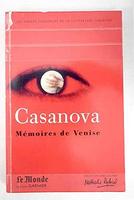One Thousand and One Nights
One Thousand and One Nights (Arabic: أَلْفُ لَيْلَةٍ وَلَيْلَةٌ ʾAlf Laylah wa-Laylah) is a collection of Middle Eastern folktales compiled in the Arabic language during the Islamic Golden Age. It is often known in English as the Arabian Nights, from the first English-language edition (c. 1706–1721), which rendered the title as The Arabian Nights' Entertainment.The work was collected over many centuries by various authors, translators, and scholars across West Asia, Central Asia, South Asia, and North Africa. Some tales trace their roots back to ancient and medieval Arabic, Sanskrit, Persian, and Mesopotamian literature. Most tales, however, were originally folk stories from the Abbasid and Mamluk eras, while others, especially the frame story, are probably drawn from the Pahlavi Persian work Hezār Afsān (Persian: هزار افسان, lit. 'A Thousand Tales'), which in turn may be translations of older Indian texts.Common to all the editions of the Nights is the framing device of the story of the ruler Shahryar being narrated the tales by his wife Scheherazade, with one tale told over each night of storytelling. The stories proceed from this original tale; some are framed within other tales, while some are self-contained. Some editions contain only a few hundred nights of storytelling, while others include 1001 or more. The bulk of the text is in prose, although verse is occasionally used for songs and riddles and to express heightened emotion. Most of the poems are single couplets or quatrains, although some are longer. Some of the stories commonly associated with the Arabian Nights — particularly "Aladdin's Wonderful Lamp" and "Ali Baba and the Forty Thieves" — were not part of the collection in the original Arabic versions, but were instead added to the collection by French translator Antoine Galland after he heard them from Syrian writer Hanna Diyab during the latter's visit to Paris. Other stories, such as "The Seven Voyages of Sinbad the Sailor", had an independent existence before being added to the collection. Source: Wikipedia (en)
Editions
5- date of publication: 1956publisher: Club français du livre
Les mille et une nuits
suivi d'un dossier « Arts et sciences au temps des califes »- date of publication: 2010ISBN-13: 978-2-35184-068-9
- date of publication: 2009ISBN-13: 978-2-35856-079-5
Works based on One Thousand and One Nights 24
- Arabian Nights
 Abu Hassan
Abu Hassan The Adventures of Prince Achmed
The Adventures of Prince Achmed- Arabian Nights
 La statue
La statue La Péri
La Péri- Wirt und Gast
- Le mille e una notte - Aladino e Sherazade
- A Thousand and One Nights
- Alif Laila
- Arabian Nights
- Las mil y una noches
- Arabian Nights
- Aladdin
- The Thousand-and-Second Tale of Scheherazade
- 1001 Knights
- Green Lantern: 1001 Emerald Nights
- Schach Lolo
- Das Wintermärchen
- Tausendundeine Nacht
- Helle Nächte
 The Harem
The Harem Scheherazade and Shahryar
Scheherazade and Shahryar- Die schönsten Geschichten aus 1001 Nacht
Works inspired by One Thousand and One Nights 3
Works about One Thousand and One Nights 1
Work - wd:Q8258










